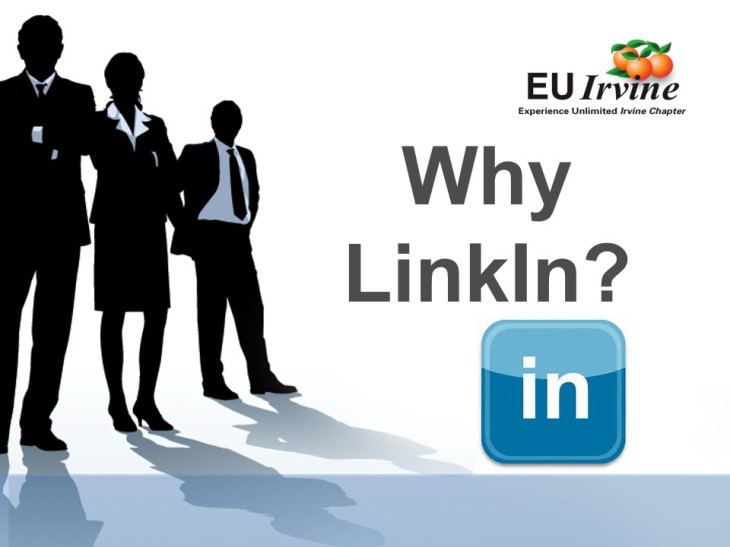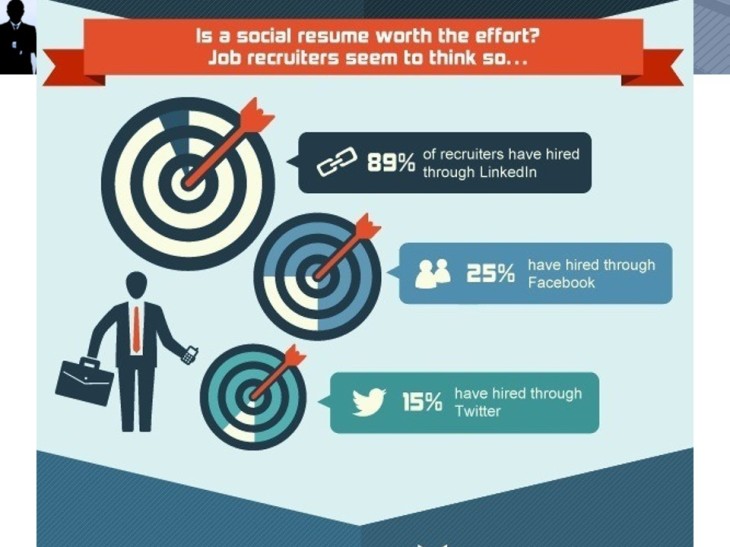Thanks to the advice of Howard, a visiting Toastmasters member from Florida, I was able to check off one of my speeches outside of my regular Toastmasters meeting. His advice? Never speak for free. (On a side note, Howard recently participated in a roast for the person who gave him that advice. So many people wanted to roast the guest of honor, each person was only allowed to speak for a minute. Howard got up, did his bit and said since he was only allowed to speak for a minute, he could not get speaking credit for it. He then turned to the honoree and handed the man a bill!)
At the EUI, we assist professionals-in-transition with their job search. We were asked to prepare a short speech to show what we could do as a trainer for the EUI. I selected the subject of why people should join LinkedIn due to the fact that some people I meet are a little hesitant (and some VERY hesitant) to join. I admit that I would rather be spending my extra time working on fundraisers or furthering my education, but I know that to have a presence on LinkedIn is vital at this stage in my life and I wanted to share a bit of what I have learned. So, without further ado, on to my speech/PowerPoint presentation…..
To find a job in today’s market, you pretty much have to be on the web to have any chance at all of landing your next gig. Facebook, Twitter, LinkedIn, Google+, Pintrest….. Where do you start??? My suggestion, start with LinkedIn. Are you on LinkedIn? If not, why not? Is it because you do not know what LinkedIn is? For those of you who are not familiar with it, think of it as Facebook for professionals. Don’t know how to create a website? Trust me, if I can figure it out, anybody can figure it out. It is made for the average person to be able to use with ease and in fact you are pretty limited on what you can do to “dress up” your page. How big is LinkedIn? Let’s go over a few numbers. There are over 225 million members worldwide and almost 3 million company pages. As of March 2013, LinkedIn was the 22nd most visited website in the world with over 5.7 BILLION searches done in 2012. There was an almost 30% increase in year over year visitors in the first quarter of 2013, me being one of those visitors. You might be saying great, so LinkedIn has a lot of traffic, but what will it do for me? LinkedIn is the ultimate place to connect with companies that are hiring and to apply for those jobs. It is a way to connect with employees at the companies you want to work with either by researching them on LinkedIn or finding connections in the chain of contacts you have built up. Want recruiters to find you? About 97% of them are mining LinkedIn to find the perfect candidates to fill their open positions. It is also a great way to reconnect with old school chums or coworkers and to get recommendations of your work without having to deal with the exchange of personal data you might share on Facebook.
Unlike our parents, workers today do not tend to spend their entire working career at the same job. Today, the average worker spends only two to five years before moving on. Seven in ten workers actively search for new opportunities on a regular basis. About a third of Millennials think the job search is more complex than it used to be compared to 43% of Baby Boomers. My parents thought that all I needed was a professionally written resume, the Sunday paper help wanted ads and a stamp. I tried every which way I could to explain to them what my plan of attack was, but they just did not get it. It took my parents about six months, and somebody else reinforcing my spiel about on-line job searches, for them to grasp what a modern job search entails. God help us all if they needed to find a job again! But do not make LinkedIn your ONLY way of searching for your next job. While it is true that 74% of people come across new jobs via online searches, 68% find them via traditional networking and 67% via job boards, so it is important to not neglect those as well. In 2011, 89% of employers used social media for recruiting. That had grown to 92% by the next year. That explains why 88% of job seekers created an online profile. 64% created two and 44% created 3 or more and,I have to confess, I am one of the 44% as I hate leaving things to chance.
If you have not done so already, I suggest you Google your name. Besides looking you up on LinkedIn and Facebook, any potential employer will most likely Google you and you want to make sure that the information coming up, especially on the first page, is putting your best foot forward. This is even more important if you have a common name. Somebody else’s information could be mistaken for your own. It might take a little extra work on your part, but you CAN get that information pushed back to page two (or beyond) and make sure you differentiate yourself so that there is no question about which profiles belong to you and which belong to someone else. Had I found a Karyn Schumaker with a prison record or other bad publicity, I would have created my profile as Karyn S. Schumaker or something along those lines to make sure I was not mistaken for the other Karyn Schumaker.
So where is the best place to build your online presence? LinkedIn is the first place I would recommend you invest your time. Facebook and Twitter are also used by large numbers of recruiters and job seekers. Blog sites such as Typepad, Tumblr. and WordPress give you a forum for creating a blog to promote your career and highlight your skills and experience. VisualCV.com allows you to create a video resume. How much time would I suggest you spend in these other sites? That is up to you. Other than LinkedIn, Facebook, Twitter and maybe WordPress, have you ever heard of the others? I had not, so I am guessing they are not nearly as popular and worth my time at this point in my job search. I also found that several of the sites I was directed to during my research for today’s speech do not even exist anymore!
If you are reading the slide, you can see that more job seekers use Facebook than LinkedIn for helping to find work. So why am I promoting LinkedIn? First of all, it is more professional than Facebook. LinkedIn grows by two new members every second and has become a powerful talent management research tool, even for executive searches. Because many executives have LinkedIn profiles, the LinkedIn database has the capacity to allow internal recruiters to replace some external executive search firms as LinkedIn profiles are searchable and easier to compare. Research has shown that LinkedIn profiles tend to be more accurate than resumes. It’s much harder for an individual to “get by” with a profile that contains inaccurate information. LinkedIn profiles are also more likely to be up-to-date than resumes because LinkedIn will periodically encourage you to keep improving and updating your profile and, as you are representing your brand, you are going to want to keep it as current and relevant as possible. This differs drastically from some other paid for services that have large databases of collected information. When you change jobs, this may not be captured for a long time. When I started at the EUI, we were doing some research on a company. On a lark, once I was logged into the database, I looked at my old facility. The GM listed there in May of 2013 left the company in June of 2005 AND had left the General Manager job a couple years before that! And this was an expensive site to be a member of!!! LinkedIn also provides a recommendations feature so, if a potential employer needs additional information on a prospect, it can provide them insights into who you are and what others have experienced when working with you. Granted it is subjective as you have the control over what recommendations you are going to allow on your page, but having a variety your connections give you recommendations and endorsements are “social proof” that you are who you say you are.
Besides allowing you to link with blogs of your choice or follow thought leaders, LinkedIn is integrated with many other services like SlideShare and at least partly integrated with many other vendors including Twitter, Taleo, Amazon, and Windows Live Messenger, just to name a few. They have over 2.1 million professional learning groups and growing. Many professionals use LinkedIn to get a quick snapshot of a stranger who contacted them or an individual whose name they come across while reading. It also makes it easier for professionals to find common ground in which to connect. If someone is looking to make contact, there are a number of ways. One would be to pay for an InMail. Another would be to try to find an email address somewhere on the public information on a person’s profile to connect. But it may be warmer to find common ground such as hobbies, similar industry, past employers, geographic location lived/worked, education, common connections or common LinkedIn groups. While the connections and groups are the easiest ways to get connected for “free”, the others give great points in which to strike up a conversation. We are all on LinkedIn to develop our own brand, so an excellent way to add to your equity is by being active, especially in groups.









